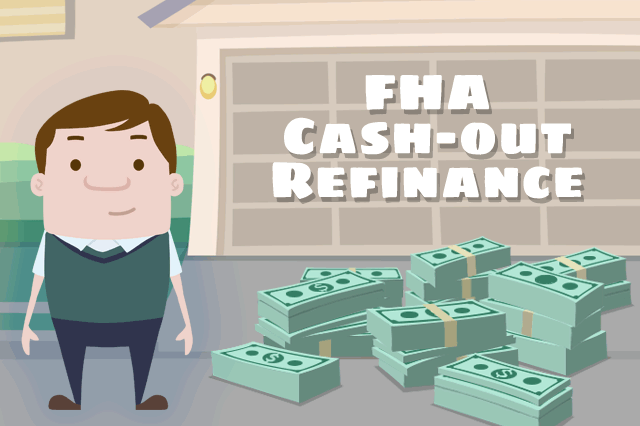
As per the mortgage data analytics reports, the average American homeowner has $130,000 in drawable equity. With cash-out refinances, you have the option to pay off your existing debt and draw higher equity you’ve built in your home.
An FHA cash out refinance pays off your existing FHA loan and allows you to take the rest of the balance in cash. This remainder can be up to 80% of your home’s value. This program is a good option for those who require funds for strategies like home improvements and credit card payoff. Below listed are some of the factors about the FHA-cash out program that you must know before you apply for it.
Qualification
To qualify for this cash-out refinance program, you need to:
- Be the owner and reside in your principal home for the past year.
- Have the current title against your name, in case you have an existing FHA loan.
- Make timely debt payments for the past year.
In certain circumstances, there can be additional rules. You need to consult your lender for guidance on the requirements that apply to your case.
Working
In the cash-out refinance program, you get a new FHA debt for an amount that is higher than your existing debt. The gap between your mortgage balance and current home value constitutes the cash-out.
You can use the home equity created from the cash-out refinances to strengthen your financial stance. Strategies like high-interest mortgage consolidation are the best fit for utilizing tapped home equity.
Maximum Loan-to-Value (LTV) Ratio for FHA cash-out
As of Sep. 1, 2019, homeowners can avail of a maximum LTV ratio of 80% for an FHA cash-out. It implies, till you have at least 20% in equity, you are eligible to borrow a maximum of 80% of your home value.
Lenders calculate your LTV considering components like your original mortgage and refinances, along with other loans, guaranteed by your home loan. The total debt can not exceed the FHA loan limit. Further, this loan limit varies with every county in the country.
Closing Cost
The closing cost of an FHA cash-out refinance includes the FHA appraisal payments. Though you may have an existing FHA loan, yet you will require a new appraisal.
Furthermore, you will have to pay an FHA mortgage insurance premium, which is 1.75% of the loan amount. In case you opt for refinancing an FHA loan that is hardly three years old, you can claim a refund on the part of the new premium.
Benefits
The credit score requirements for the FHA cash-out refinancing programs are lesser, with a required minimum score of 500, as compared to the conventional programs.
Further, this program can be helpful to refinance any loan. The program, unlike other mortgage programs, does not apply restrictions on the geographical location of the property. Besides, due to leniency in credit score, first-time homebuyers can explore more options across the country. Also, the person buying the home from you can take over the loan at the refinancing rate.
Federal Housing Administration insures the FHA cash-out refinancing program. The relaxed qualification requirements make FHA cash-out programs an attractive option for borrowers not eligible for a conventional loan.
